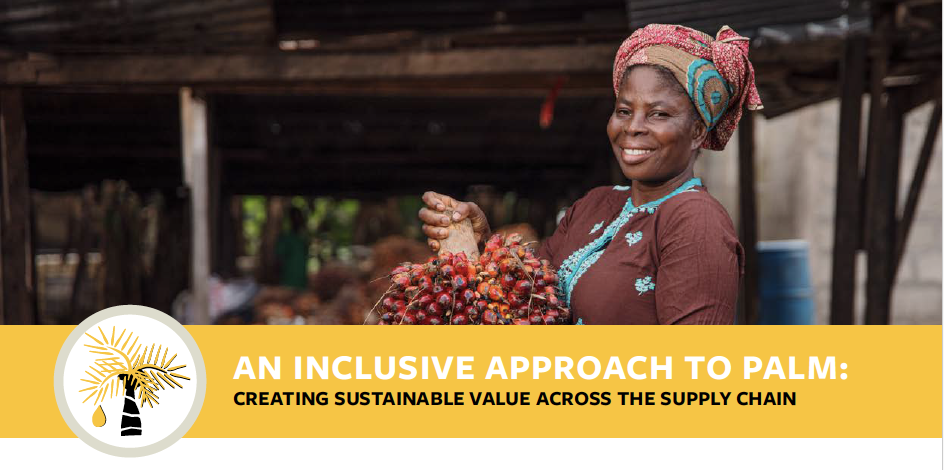Palm oil is the most widely-used, highly efficient vegetable oil in the world. Though palm oil represents 40% of the world’s vegetable oil supply and just 6% of land area dedicated to oil production, its production is often associated with environmental and social risks. When palm oil is produced responsibly under the right conditions, it can play a vital role in the sustainable production and trade of vegetable oils.
Fostering the transition to sustainable and inclusive palm
At Solidaridad, we believe that the transition towards a sustainable and inclusive palm oil supply chain is possible. We have years of expertise working with companies and stakeholders to show how each actor contributes to sustainable and resilient palm oil production landscapes.
The core of our work focuses on improving the livelihoods of smallholder farmers, in balance with nature. Oil palm is grown by millions of smallholder farmers across the tropics. They play a crucial role in the sustainable transition of the sector. However, farmers face various challenges and need support on multiple levels to improve the conditions in which they produce. Through our interventions we work towards supply chains that include and support farmers to produce in a sustainable way.
A strong track record in palm sustainability
Solidaridad’s global programme focuses on the main palm oil producing and consuming regions. Over the years, we have built a strong track record for improving sustainability and inclusivity in palm oil worldwide. We work with numerous stakeholders, from producers to governments, private sector partners and knowledge institutes. Smallholder-inclusive sustainability is at the heart of our work. Globally, we work on ensuring sustainable and inclusive palm oil supply chains at three levels: producers, markets, and policy ecosystem.
Find out more about our solutions and track record in palm oil here.

